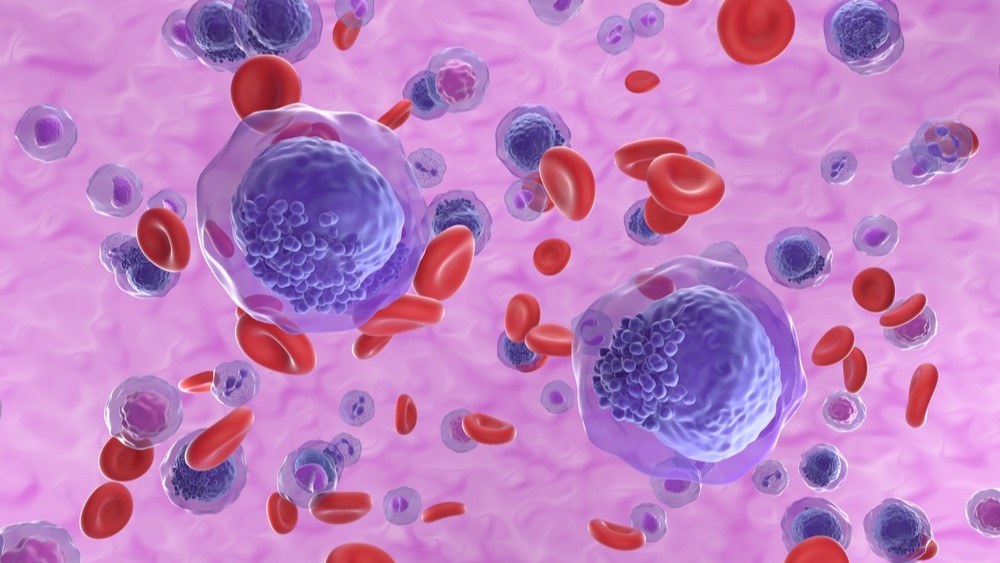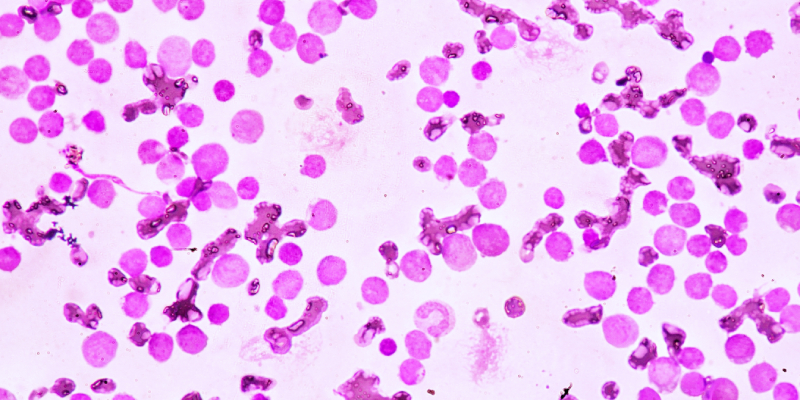
Revumenib-targeted therapy produces favorable remission rates and is well-tolerated in patients with relapsed or refractory menin-lysine methyltransferase 2A-rearrranged (KMT2Ar) acute leukemia. This was the interim analysis finding from the phase II portion of the international phase I/II AUGMENT-101 trial, reported in the Journal of Clinical Oncology.
Lead author Ghayas C Issa, MD, of the University of Texas MD Anderson Cancer Center in Houston, Texas, wrote “treatment with the menin inhibitor revumenib provided clinical benefit and a low rate of discontinuation for [adverse events (AEs)] indicating a predictable safety profile.”
The trial enrolled 94 patients and the cohort had a median age of 37 years. All patients had relapsed or refractory KMT2Ar acute leukemia or acute myeloid leukemia (AML) with nucleophosmin 1 (NPM1) mutation. They received oral revumenib once every 12 hours, in 163 mg doses or 95 mg/m2 if patient weight was less than 40 kg, plus a cytochrome P450 inhibitor in 28-day cycles.
Efficacy was evaluable in 57 patients, all of whom had centrally confirmed KMT2Ar disease, and their overall response rate was 63.2%. Their rate of complete remission with partial hematologic recovery was 22.8%, which exceeded the null hypothesis of 10% (P=.0036). Among the 22 patients in whom measurable residual disease (MRD) could be evaluated, 15 had none detected.
Safety results were evaluated in all patients with confirmed KMT2Ar disease who underwent treatment. Regarding the prevalence of grade 3 or worse severity AEs among them, 37.2% experienced febrile neutropenia, 16.0% had differentiation syndrome, and 13.8% had QTc prolongation.
The separate trial cohort of patients with AML with NPM1 mutation is ongoing.
Reference
Issa GC, Aldoss I, Thirman MJ, et al. Menin inhibition with revumenib for KMT2A-rearranged relapsed or refractory acute leukemia (AUGMENT-101). J Clin Oncol. 2024. doi:10.1200/JCO.24.00826






 © 2025 Mashup Media, LLC, a Formedics Property. All Rights Reserved.
© 2025 Mashup Media, LLC, a Formedics Property. All Rights Reserved.